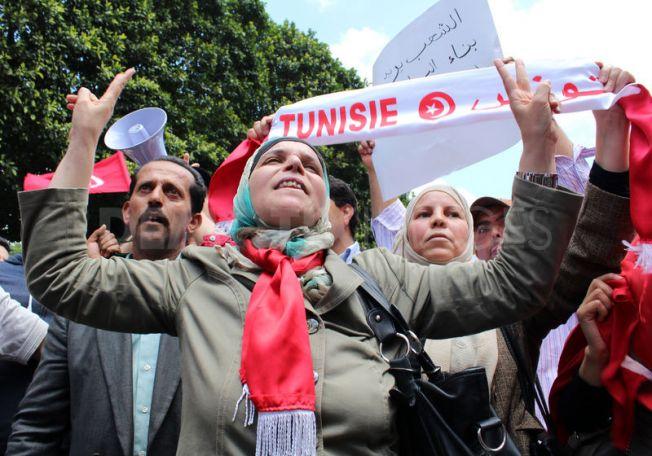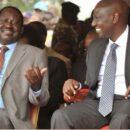Zimbabwe: one year on ZANU-PF consolidates power, but economy remains in dire straits


Robert Mugabe’s Zanu-PF has effectively seen off the political challenge from the MDC. Economic problems, however, persist.
One year on from Zimbabwe’s heavily disputed 2013 elections, we asked Simukai Tinhu, a Zimbabwean political analyst (and regular AA contributor) and Nicole Beardsworth, a PhD student at Warwick University, to comment on how they think President Robert Mugabe and his ZANU-PF party have performed in the past year.
Simukai Tinhu: “˜ZANU-PF’s first order of business was to consolidate power and banish the opposition to the fringes of Zimbabwe’s political playground.’
On the 31st July 2013, Zimbabweans went to the polls to choose a new government. Despite complaints of election irregularities by the opposition and the West, voters decided to retain President Mugabe over his long-term rival, Morgan Tsvangirai. His party, ZANU-PF, even secured an overwhelming majority in parliament, paving the way for the President’s government to change or introduce new laws at will.
In the run up to the July elections, though the economy had improved significantly, the country was still beset with high unemployment, international sanctions (which led to political isolation) and human rights abuses. ZANU-PF party campaigned on the promise to improve the situation in all these spheres. Mugabe also told his party supporters that he would extinguish the opposition from the nation’s political landscape.
ZANU-PF’s first order of business was to consolidate power and banish the opposition to the fringes of Zimbabwe’s political playground. The latter appears to have been achieved with impressive speed and surprising success.
Until 2008, the opposition had been gaining ground, threatening to challenge President Mugabe’s stranglehold on Zimbabwe’s political landscape. Indeed, Morgan Tsvangirai’s MDC scored significant victories in the 2002 and 2008 elections, leaving President Mugabe’s party as the minority in the legislative assembly.
However, with the thumping in last year’s elections, ZANU-PF ruined the game that the opposition was playing and caused discontent amongst its leadership. Indeed, the divisions within the MDC, fuelled by this defeat, have significantly aided ZANU-PF’s mission to undermine it. The MDC’s existence as an opposition party capable of beating ZANU-PF in national elections is effectively dead.
In the past year, there has also been a significant shift on two important policies that have guided ZANU-PF since 2000: ‘fast track’ land reform and indigenisation. Having reassured the remaining 300 farmers during the government of national unity that they will not be kicked off their land, recently, President Mugabe, who considers land reform to be unfinished business, told supporters at a rally that his government was going to squeeze out the remaining white farmers.
Given Mugabe’s continued control over party (and ultimately national) policy, this directive is likely to be carried out in the near future, if the president maintains his stance. Decision making in ZANU-PF resembles a pyramid, with the president’s rhetoric and views often setting the agenda for the party and government.
Regarding indigenisation, there have been increasing calls to include a degree of flexibility in its implementation. Though it initially targeted mainly natural resource-related businesses, the government latterly started calling for the standard application of the indigenisation policy across the commercial sector. However, the unsustainable nature of deals such as Zisco-Essar ‘merger’, have provided evidence to the ZANU-PF government of the difficulties of the 51% local ownership towards highly intensive capital industries.
A lack of consensus within the political establishment on how the policy should be implemented, significant opposition from local and international investors and opposition political parties have also seen the government seriously contemplating the benefits of this model.
On the diplomatic front, there have been a number of bright spots. Until 2008, Zimbabwe’s foreign policy had been stuck in a rut. The US-imposed sanctions against the ‘leadership’ through the ZEDERA act, and the European Union’s version of punitive measures left Harare isolated. Today, Zimbabwe’s relations with the EU and individual European countries have never been better. This can be gauged by the number of positive comments that have been made by the EU and individual country officials in the past year.
For example, in June, Aldo Dell’Acriccia, the EU ambassador to Zimbabwe said that there was no leadership crisis in Zimbabwe. Not to be outdone, the French ambassador, Laurent Delahousse, stated that President Mugabe and ZANU-PF have tried to create a ‘safe and sustainable’ environment for investors in the country.
These budding Zimbabwe-West relations are by no means a one way street. The Zimbabwe government has also made some efforts with the latest charm offensive being made by the president himself. In April, he invited the Europeans to rekindle their relations with Zimbabwe and as part of attempts to persuade investors that his country was prepared to work with the international community, the Finance Minister, Patrick Chinamasa swung through major European countries, before ending up in Washington. The government has also consciously toned down its anti-western rhetoric.
Most significant, has been the enhancement of the Zimbabwe-Britain relations. Diplomatic efforts by the Zimbabwe government, in particular its Foreign Ministry, has seen the British government lower its lobbying of Brussels against taking a tough stance on the southern African nation. Indeed, without lobbying from London, Brussels and Washington have been circumspect in their criticism of the ZANU-PF government. Though the relations have not fully reached their pre-2000 peak, the ZANU-PF government appears to have made a breakthrough as relations shift ineluctably towards rapprochement.
Nicole Beardsworth: “˜Uncertainty is one of the main drivers of the country’s economic woes which continue to militate against critically important foreign investment.’
Whilst the political situation may be improving, the situation with the economy isn’t so positive. When they romped to victory in 2013, the ZANU-PF government inherited a crippled economy, the product of more than a decade of economic policy based on politically-expedient and often short-sighted redistributive efforts. Between 2000 and 2008 the Zimbabwean economy experienced a now-infamous period of hyperinflation estimated at a cumulative 500 million percent and shrank by 50% – to a level equivalent to that in 1953.
The 2009 to 2013 inclusive government was credited with having overseen a substantial recovery. This is predominantly attributable to the formalization of the use of a multi-currency system and higher international confidence in the technocratic financial management skills of MDC Finance Minister, Tendai Biti. It is important to note however, that while the economy stabilized during the GNU years, underlying structural problems plaguing the country were not resolved.
In spite of the perceived recovery, Zimbabwe remained an austerity economy from 2008 to 2013 and had already begun to contract again in the final 18 months of the GNU; suffering reduced growth, increased inflation and ever-growing unemployment.
Indeed, under the ZANU-PF, it appears there has been a return to a crisis economy. This has largely been attributed to business closures, a lack of investor confidence due to policy uncertainty, a liquidity crisis which has resulted in bank closures and rapidly increasing unemployment which has contributed to fiscal woes by further shrinking the diminishing tax base. Industry is estimated to be operating at 30% of capacity and unemployment hovers at around 80%.
The country is also plagued by a massive external debt which is currently approximated at $10.7 billion dollars – 100% of GDP and massive balance of payments crisis, with a $4 billion dollar trade deficit which has helped to produce a liquidity crisis in the financial sector. Perceived financial risk preceding and in the immediate aftermath of the elections prompted investors to withdraw funds (the formal banking sector lost $56.08 million in withdrawals in August 2013) and cancel buy orders (amounting to a $600 million drop) which undermined market capitalisation.
In the face of these challenges, the finance ministry is handicapped by a lack of autonomy over monetary policy which constrains their ability to slow this steep decline in the economy.
Wages currently represent 85% of the national budget, a level that is seen to be unsustainable by the IMF. After having increased salaries in October 2013, government was hit by a budgetary crisis in early 2014 which left them four months in arrears on civil servants’ salaries. This resulted in rumours in April from high-ranking ZANU-PF members, civil servants and officials at Fidelity Printers and Refineries of the return of the Zimbabwean dollar, sparking widespread concern and unease.
Amidst the crisis around civil servants’ wages, the state media broke a story which came to be known as “˜salarygate’ – heads of underperforming para-statals were being paid as much as $240,000 per month, which exceeds the salary paid to UK Prime Minister. Finance Minister Patrick Chinamasa has since capped executive salaries at $6,000 per month, though the damage has already been done to para-statals which have also haemorrhaged money due to corruption and mismanagement by senior staff.
ZANU-PF has a long track record of making ill-advised economic decisions based on short-term political motivations. Ahead of the 2013 elections they continued this trend by offering rate defaulters debt clearance for public goods, which resulted in suppliers writing off hundreds of millions in debts. The chronically indebted Zimbabwe Electricity Supply Authority (ZESA) was unable to recoup over $700 million owed to it by customers, undermining its capacity to improve its dilapidated infrastructure.
ZANU-PF’s new economic blueprint – The Zimbabwe Agenda for Sustainable Socio-Economic Transformation (ZAMASSET) – was welcomed by local and international business communities as representing a shift in policy-making towards a more pragmatic and consultative approach. Analysts also believe that the policy represents a softening and clarification of the indigenisation laws.
This plan prioritises infrastructural regeneration, particularly with regards to electricity production, transport, and the water supply. However, the origin of the $27 billion needed to implement this policy remains unclear as foreign donors and lenders, including China, have become increasingly wary of continued lending. China has requested that any new loans be secured against diamond and gold export earnings, as Zimbabwe already owes over $1.5 billion, secured since 2011.
The US, EU and even China are unwilling to fund direct budget support, with China opting instead to invest only in resources and infrastructure. In the mining sector, a proposed new 15% levy on unfinished platinum exports and proposed changes to the levies and taxes charged for different minerals have further worried foreign firms.
Uncertainty and a lack of trust remain the main inhibitors to investment. Economic policy in Zimbabwe is still largely reactive, though the new administration certainly represents a turn towards increased pragmatism. In 2014, the Finance Minister has made significant overtures to multilateral institutions and has attempted to restore relations with the EU in a bid to reopen lines of credit and repair Zimbabwe’s damaged national brand.
In addition, a number of ministers, including the Ministers of Finance and Indigenisation, have recently made statements regarding the softening of the indigenisation laws and the possibility of greater flexibility in non-mining sectors.
The state has also attempted to resolve the liquidity crisis by restarting an interbank lending system, recapitalising the Central Bank and restoring the Reserve Bank as the lender of last resort. However, recent reports have suggested that a proposed new legal amendment will restrict foreign investors to holding just 25% of any bank – a concern for UK lenders Barclays and Standard Chartered and a further disincentive for investment in the financial sector.
The Zimbabwean Revenue Authority announced in July that it would be reviewing its tax policies in an effort to clamp down on tax evasion and enforce compliance following revelations that the country lost $85 million in unpaid taxes from para-statals, state enterprises and local authorities between 2009 and 2013. These reforms are critical, and need to go hand-in-hand with greater transparency in the remittance of diamond and mineral revenues back to the treasury.
These are moves in the right direction and it is clear that there is greater pragmatism in the management of the economy under this administration, but it is imperative that government begins to speak with one voice, soothing investors’ fears, investing in the country’s comparative advantage and making Zimbabwe an investment-friendly destination.
Uncertainty – particularly around elections, property rights and the relative unpredictability of ZANU-PF economic policy – is one of the main drivers of the country’s economic woes which continue to militate against critically important foreign investment. Unfortunately, investors have a long memory and it is likely to take sustained, predictable and largely unpopular measures for trust and confidence to be restored.
For more on Zimbabwe click here







Only after ZANU PF depart the scene, commercial farmers are compensated and those responsible for the many murders and beatings over the past 14 years are held responsible will the country move on.
The opposing views of these two authors says everything about Zimbabwe.
The black author comments that the remaining [white] farmers will be removed soon, and yet makes no comment regards the racism behind this. Otherwise he is upbeat. He wants the revolution to work.
The white author is critical and less upbeat, and mentions property rights.
There you have it. Zimbabwe summed up by two authors.
William Doctor, this is but a blog. It says more about the person reading and commenting (you), than about the writers, to attribute views to the race of the writers without an inkling of the complexities of their positions. It also says a lot about the people who have dived to comment on Zimbabwe with a fair amount of shallowness. There is such space on these online platforms to introduce your analyses without making limited racial binary expositions
@ Pfungwe
Fuck you. What gives you the right to determine the parameters of comment. Its called freedom-of-speech. A freedom Zimbabweans don’t have.
Has the electoral roll been published? Is there any constitutional basis for removing people from their property on the grounds of their racial origin? Would you trust a political establishment that ignores its own laws? I don’t live in Zimbabwe, as a free thinker and student of history, my views would probably not be very welcome there. My analogy of Zanu PF is that the country they inherited was like a big tin of Quality Street. First they ate the sweets, then used the coloured wrappers to appear pretty, then decided to scrape the paint off the tin, then cut up the tin and sold it for scrap. But there is no second tin of sweets.
The essential profound tragedy existent in Zimbabwe is the utter lack of strong robust independent institutions which both function and are subject to non-arbitrary normative rule of law process and procedure.
The Zimbabwean Government functions by fiat and is suborned to the social subjective ethos of Mugabe who in the last decade has proven incompetent governing with a mailed fist as the result is a Zimbabwe impoverished in ‘soul ethos’ and economically fragile. All citizens–white and black are suffering save for those who have brokered an arrangement with the governing oligarchic elite.
Elections to be prescriptive must conform to a normative standard in both process and procedure and not be conducted within an ethos of government imposed fear and intimidation. An economic pluralistic Zimbabwe has a future bright.